|
#4
22nd March 2015, 12:15 PM
| |||
| |||
| Re: UPSC Exam Question Paper
The previous year Political Science question paper of IAS or Indian Administrative Service exam conducted by UPSC or Union Public Service Commission is as follows: UPSC Exam Question Paper 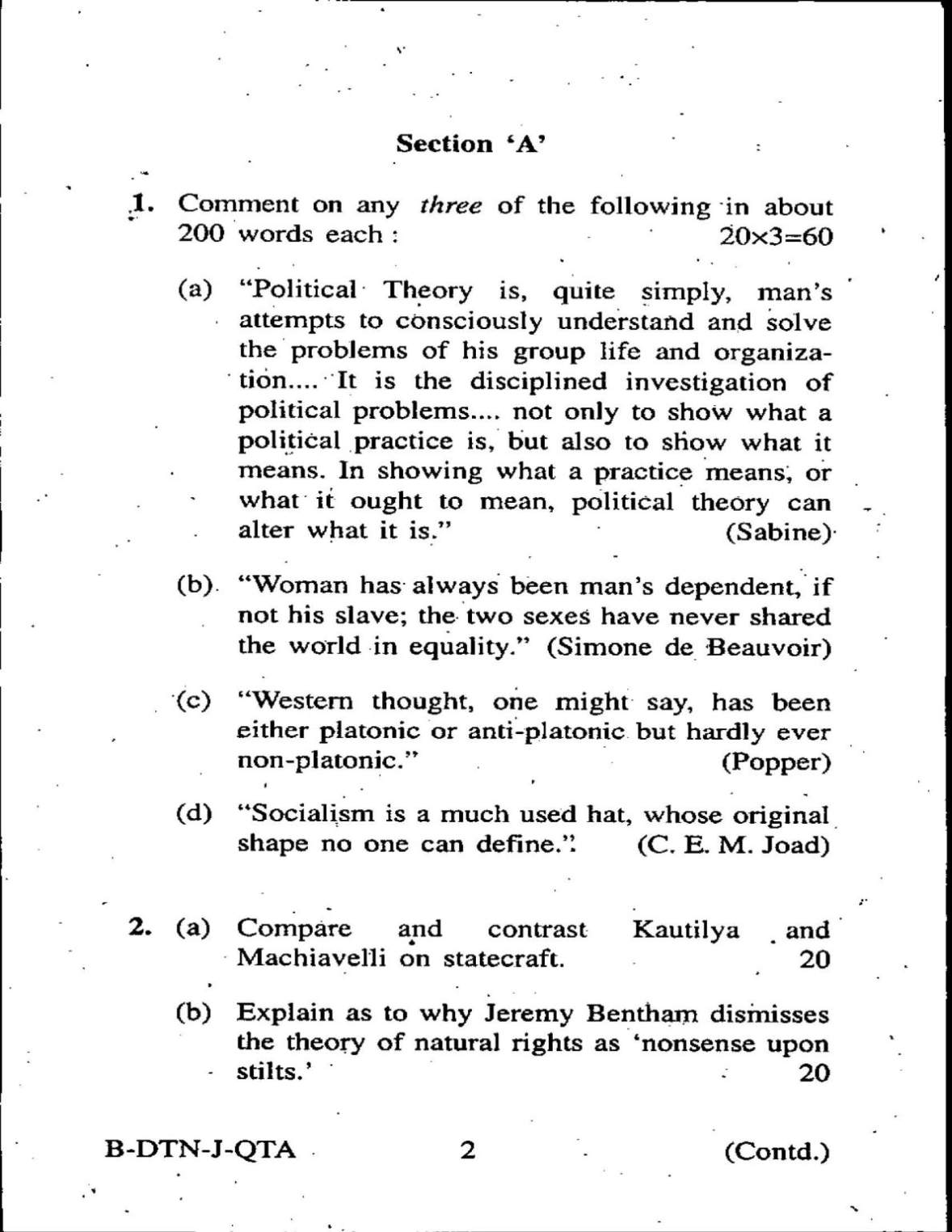 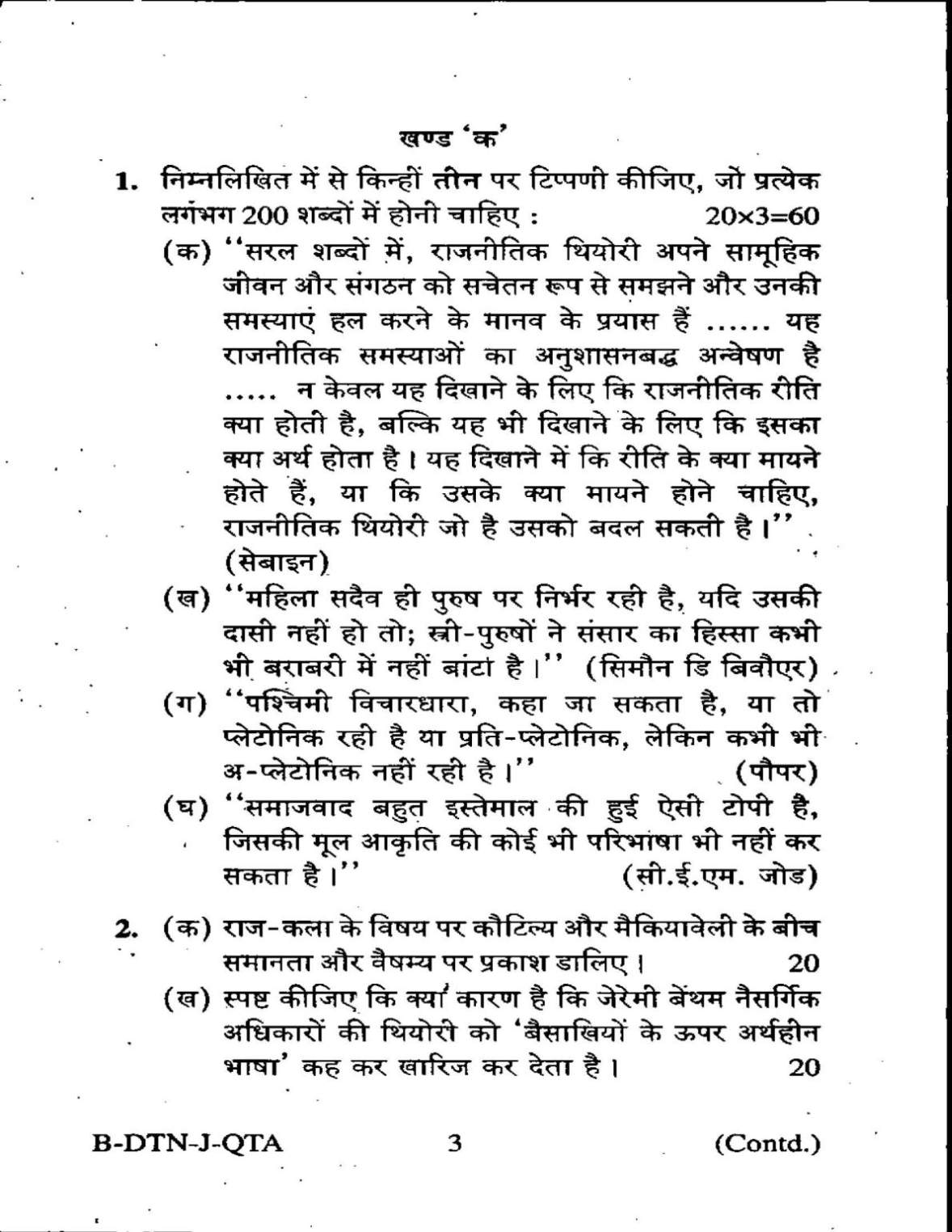 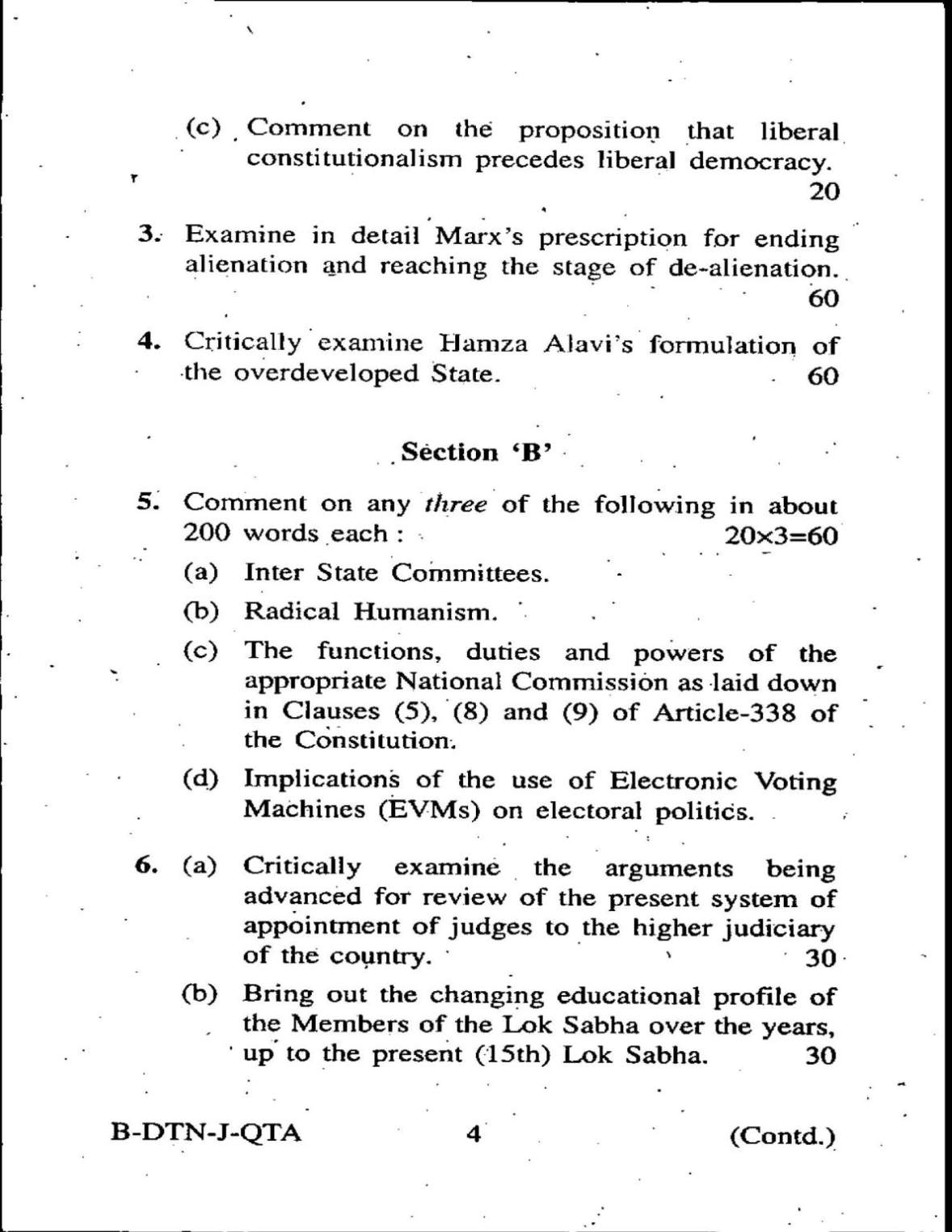 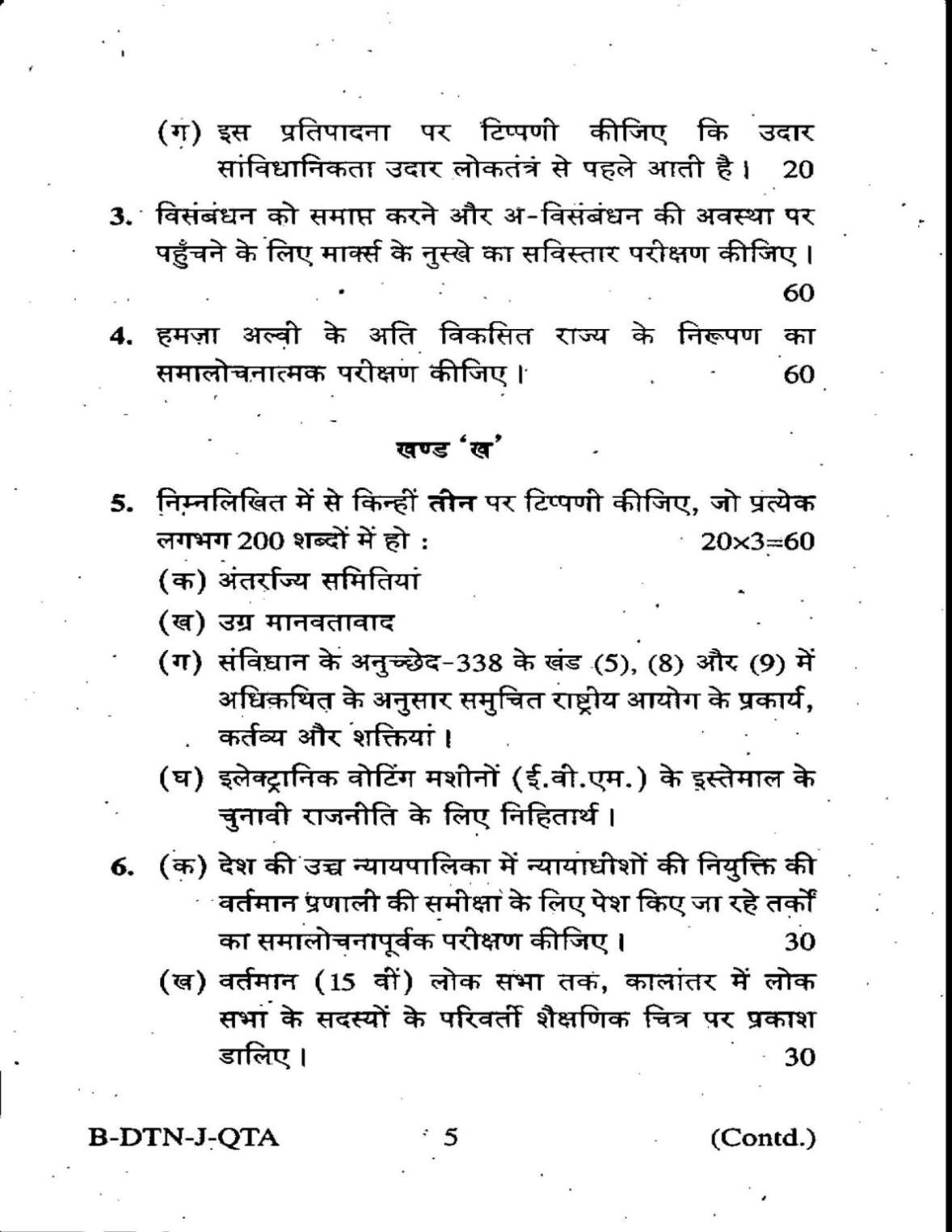 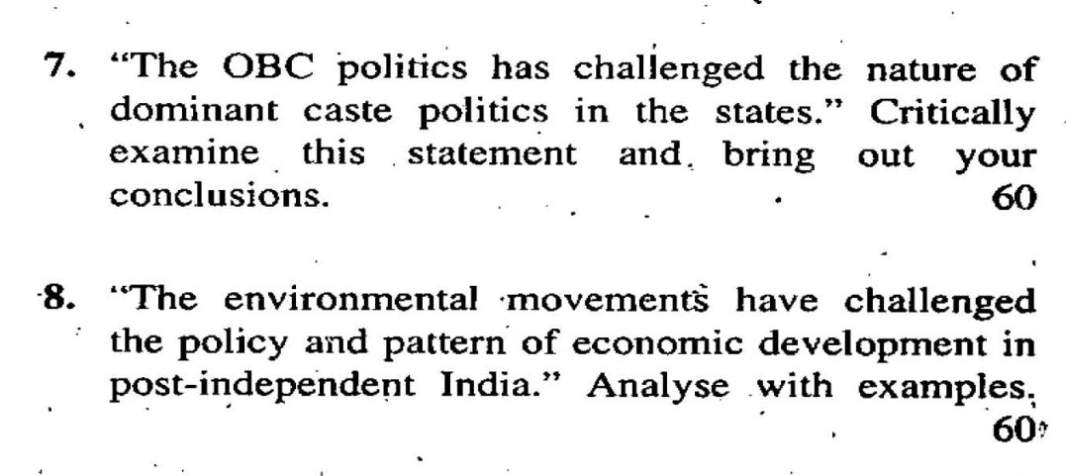 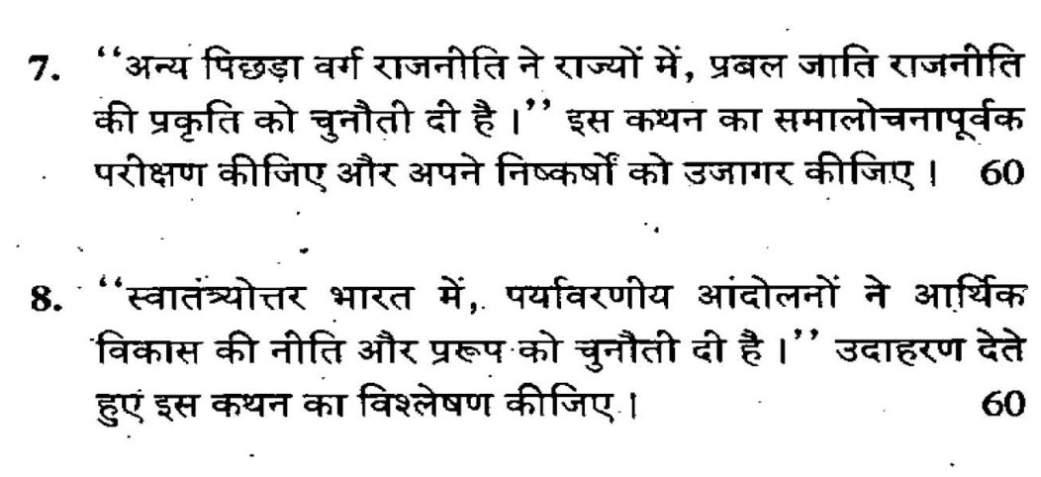 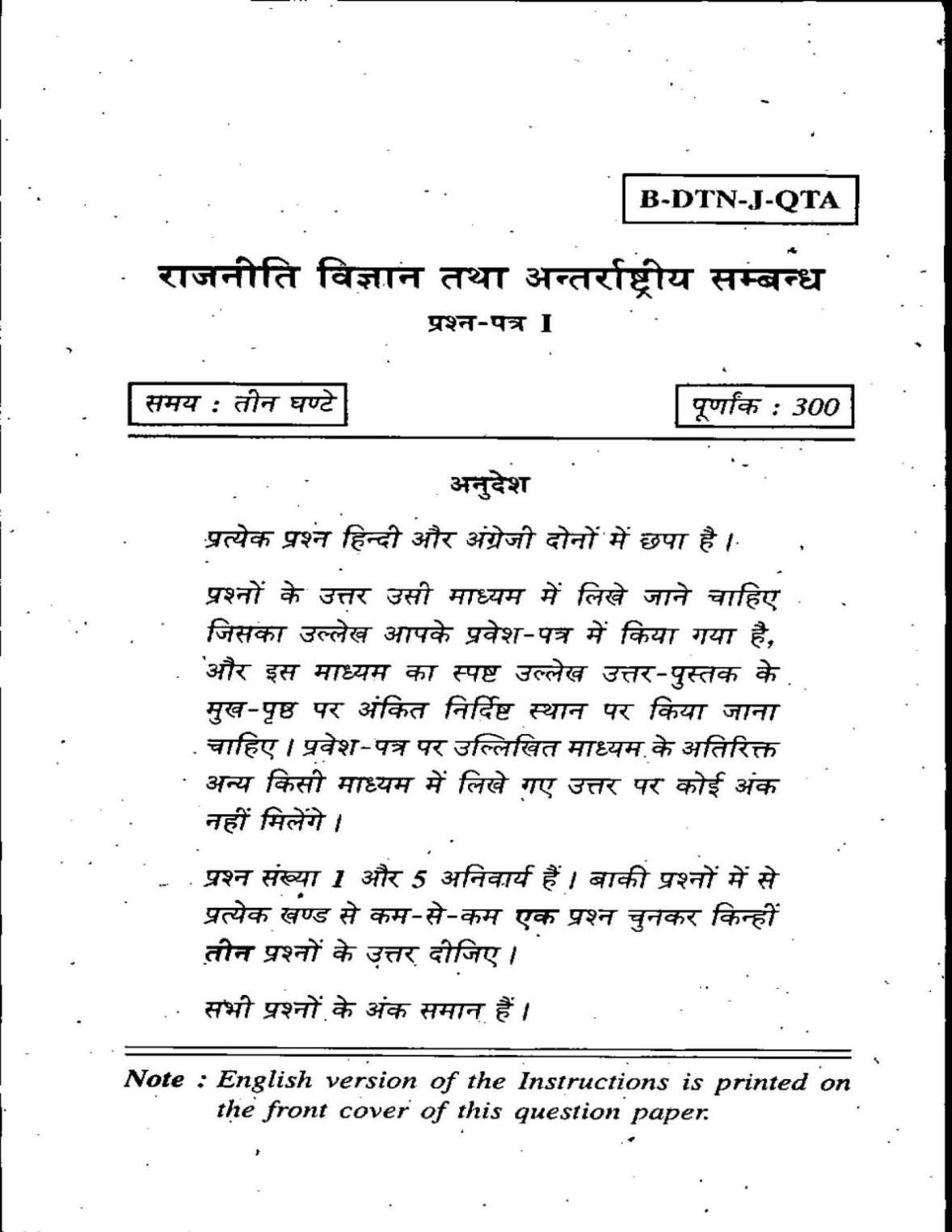 Political Science Syllabus for Main Examination Political Theory and Indian Politics 1.Politicaltheory meaning and ap-proaches 2.Theories of the state: Liberal, Neoliberal, Marxist, Pluralist, Post-colonial and feminist. 3.Justice: Conceptions of justice with special reference to Rawl's theory of justice and its communitarian critiques. 4.Equality: Social, political and economic;relationship between equality and freedom; Affirmative action. 5.Rights: Meaning and theories; different kinds of rights; concept of Human Rights. 6.Democracy: Classical and contemporary theories; different models of democracy – representative, participatory and deliberative. 7.Concept of power, hegemony, ideology and legitimacy. 8.Political Ideologies: Liberalism, Socialism, Marxism, Fascism, Gandhism and Feminism. 9.Indian Political Thought: Dharamshastra, Arthashastra and Buddhist traditions ; Sir Syed Ahmed Khan, S r i Aurobindo, M.K. Gandhi, B.R. Ambedkar,M.N. Roy . 10.Western Political Thought :Plato ,Aristotle, Machiavelli, Hobbes, Locke, John,S. Mill, Marx, Gramsci, Hannah Arendt. Indian Government and politics 1.Indian Nationalism: Political Strategies of India's Freedom struggle : constitutionalism to mass Satyagraha, Non-cooperation, Civil Disobedience ; millitant and revolutionary movements, Peasant and workers' movements. Perspectives on Indian National Movement: Liberal, Socialist and Marxist; Radical humanist and Dalit. 2.Making of the Indian Constitution: Legacies of the British rule; different social and political perspectives. 3.Salient Features of the Indian Constitution: The Preamble, Fundamental Rights and Duties, Directive Principles; Parliamentary System and Amendment Procedures; Judicial Review and Basic Structure doctrine. 4. Principal Organs of the Union Government: Envisaged role and actual working of the Executive, Legislature and Supreme Court. Principal Organs of the State Government: Envisaged role and actual working of the Executive, Legislature and High Courts. 5.Grassroots Democracy: Panchayati Raj and Municipal Government; significance of 73rd and 74th Amendments; Grassroot movements. 6.Statutory Inst i tut ions/Commissions: Election Commission, Comptroller and Auditor General, Finance Commission, Union Public Service Commission, National Commission for Scheduled Castes, National Comission for scheduled Tribes, National Commission for Women; National Human Rights Commission, National Commission for Minorities, National Backward Classes Commission. 7.Federalism: Constitutional provisions; changing nature of centre-state relations; integrationist tendencies and regional aspirations; inter-state disputes. 8.Planning and Economic Development : Nehruvian and Gandhian perspectives; role of planning and public sector; Green Revolution, land reforms and agrarian relations; liberalilzation and economic reforms. 9.Caste, Religion and Ethnicity in Indian Politics. 10.Party System: National and regional political parties, ideological and social bases of parties; patterns of coalition politics; Pressure groups, trends in electoral behaviour; changing socio- economic profile of Legislators. 11.Social Movements: Civil liberties and human rights movements; women's movements; environmentalist movements PART II Comparative Politics and InternationalRelations Comparative Political Analysis and International Politics: 1. Comparative Politics: Nature and major approaches; political economy and political sociology perspectives; limitations of the comparative method. 2.State in comparative perspective: Characteristics and changing nature of the State in capitalist and socialist economies, and, advanced industrial and developing societies. 3. Politics of Representation and Participation: Political parties, pressure groups and social movements in advanced industrial and developing societies. 4. Globalisation: Responses from developed and developing societies. 5. Approaches to the Study of International Relations: Idealist, Realist, Marxist, Functionalist and Systems theory. 6. Key concepts in International Relations: National interest, Security and power; Balance of power and deterrence; Transnational actors and collective security; World capitalist economy and globalisation. 7. Changing International Political Order: Rise of super powers; strategic and ideological Bipolarity, arms race and Cold War; nuclear threat; Non-al igned movement : Aims and achievements; Collapse of the Soviet Union; Unipolarity and American hegemony; relevance of non-alignment in the contemporary world. 8. Evolution of the International Economic System: From Brettonwoods to WTO; Socialist economies and the CMEA (Council for Mutual Economic Assistance); Third World demand for new international economic order; Globalisation of the world economy. 9. United Nations: Envisaged role and actual record; specialized UN agencies-aims and functioning; need for UN reforms. 10. Regionalisation of World Politics: EU, ASEAN, APEC, SAARC, NAFTA. 11. Contemporary Global Concerns: Democracy, human rights, environment, gender justice, terrorism, nuclear proliferation. India and the World: 1. Indian Foreign Policy: Determinants of foreign policy; institutions of policy-making; continuity and change. 2. India's Contribution to the Non-Alignment Movement: Different phases; current role 3. India and South Asia: Regional Co-operation: SAARC – past performance and future prospects. South Asia as a Free Trade Area. India's "Look East" policy. Impediments to regional co-operation: river water disputes; illegal cross-border migration; ethnic conflicts and insurgencies; border disputes. 4. India and the Global South: Relations with Africa and Latin America; leadership role in the demand for NIEO and WTO negotiations. 5. India and the Global Centres of Power: USA, EU, Japan, China and Russia. 6. India and the UN System: Role in UN Peace-keeping; demand for Permanent Seat in the Security Council. 7. India and the Nuclear Question: Changing perceptions and policy. 8. Recent developments in Indian Foreign policy: India's position on the recent crisis in Afghanistan, Iraq and West Asia, growing relations with US and Israel; vision of a new world order. |
